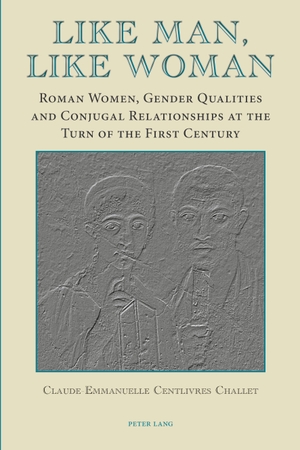Für statistische Zwecke und um bestmögliche Funktionalität zu bieten, speichert diese Website Cookies auf Ihrem Gerät. Das Speichern von Cookies kann in den Browser-Einstellungen deaktiviert werden. Wenn Sie die Website weiter nutzen, stimmen Sie der Verwendung von Cookies zu.
Cookie akzeptieren
Claude-Emmanuelle Centlivres Challet
Like Man, Like Woman
- Peter Lang
- 2013
- Taschenbuch
- 212 Seiten
- ISBN 9783039119127
Modern scholarship often discusses Roman women in terms of their difference from their male counterparts, frequently defining them as 'other'. This book shows how Roman male writers at the turn of the first century actually described women as not so different from men: the same qualities and abilities pertaining to the domains of parenthood, intellect and morals are ascribed by writers to women as well as to men. There are two voices, however: a traditional, ideal voice and an individual, realistic voice. This creates a duality of representations of women, which recurs across literary genres and reflects a duality of mentality. How can we interpret the
Mehr
Weniger
zzgl. Versand
in Kürze